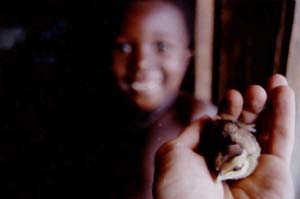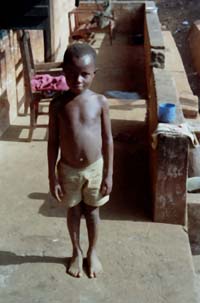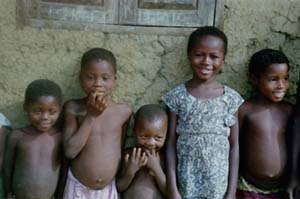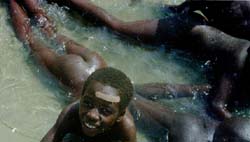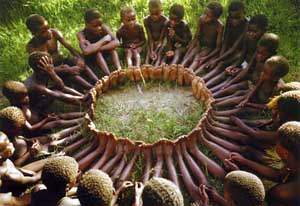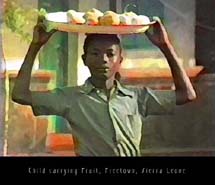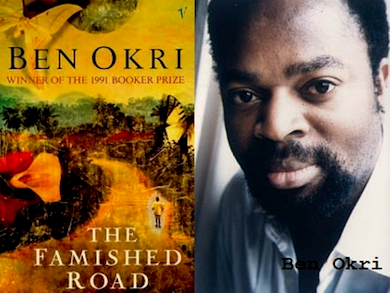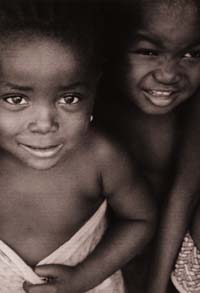"I Bring What I Love" Documentary Excerpt featuring Youssou N'Dour (Senegal)
You heads of state you may lead a country, but you don't own it. True leaders love their countries.
Excerpt from "The Famished Road," by Ben Okri
Although we can ask for help, let's depend on ourselves first. When I think of how our grandparents suffered,
I cry but our past must not stop us from moving forward. Youssou N'Dour, 'New Africa'.Selected photographs by Alan C. Geoghegan
bird catcher near freetown, © Alan GeogheganIn the beginning there was a river. The river became a road and the road branched out to the whole world. And because the road was once a river it was always hungry. In that land of beginnings spirits mingled with the unborn. We could assume numerous forms. Many of us were birds. We knew no boundaries. There was much feasting, playing and sorrowing. We feasted much because of the beautiful terrors of eternity. We played much because we were free. And we borrowed much because there were always those amongst us who had just returned from the world of the living. They had returned inconsolable for all the love they had left behind, all the suffering they hadn't redeemed, all that they hadn't understood, and for all that they had barely begun to learn before they were drawn back to the land of origins.
They had returned inconsolable for all the love they had left behind, all the suffering they hadn't redeemed, all that they hadn't understood, and for all that they had barely begun to learn before they were drawn back to the land of origins.
